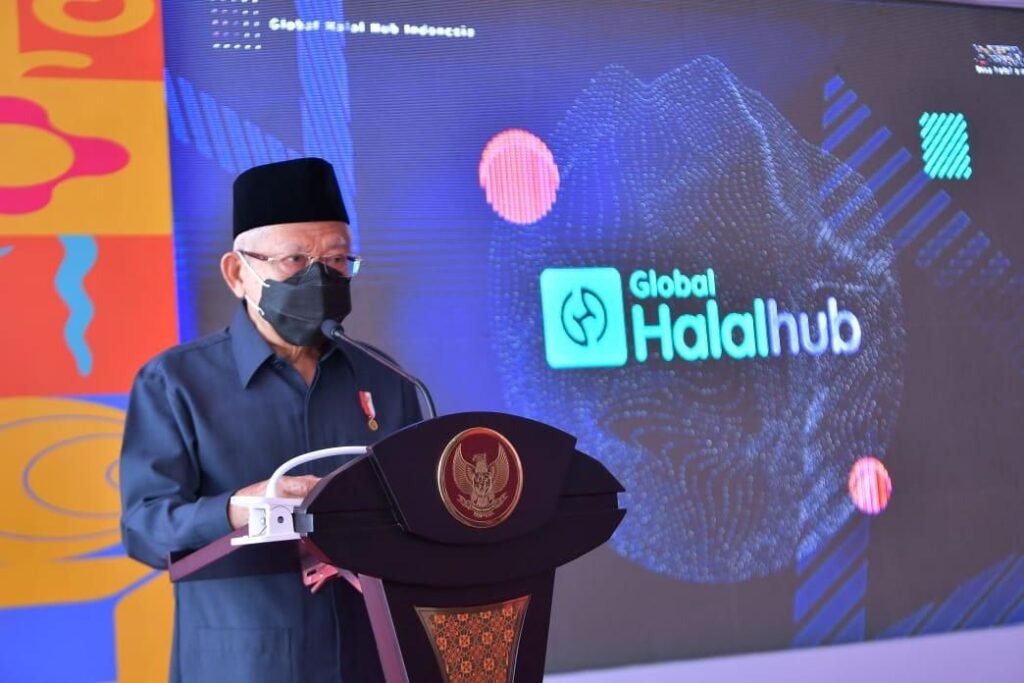
Fakih Fadilah Muttaqin
In the emerging landscape of the global economy, the halal sector has become a strategic arena for Muslim-majority countries to reclaim economic sovereignty and project their values to the world. For Indonesia is not merely about producing certified halal goods; it is about building an Islamic soft power economy that enhances the nation’s global influence and leadership in the Muslim world.
According to the State of the Global Islamic Economy Report (DinarStandard, 2024), the global halal market is projected to exceed US$3 trillion by 2025, growing at an average rate of 7% per year. The largest contributions come from food, tourism, fashion, and pharmaceuticals. Indonesia holds a unique position—not only as the world’s most populous Muslim nation but also as a country with a strong tradition of Islamic moderation, dynamic SMEs, and a value-oriented development model.
The ambition to become a global halal hub aligns closely with the concept of Islamic Developmentalism—a model of economic progress that blends market logic with Islamic values (El-Affendi, 2019; Nagaoka, 2022). This framework asserts that Muslim nations can achieve sustainable development when sharia-compliant industries serve as engines of innovation and self-reliance.
At the same time, Joseph Nye’s theory of soft power (2004) provides an analytical lens to understand how cultural and moral capital can shape global influence. Halal economics, when viewed through this prism, is not merely a consumption system—it is a vehicle for transmitting Islamic values into global markets.
Indonesia’s brand of moderate Islam and its rapidly growing halal lifestyle ecosystem position the country as a leader in Islamic soft power, capable of redefining how faith and modernity coexist in the global economy.
Halal Tourism: Inclusive Branding and Cultural Diplomacy
Halal tourism represents one of Indonesia’s strongest manifestations of Islamic soft power. The Global Muslim Travel Index 2023 (CrescentRating–Mastercard) ranked Indonesia first globally, tied with Malaysia. This recognition underscores Indonesia’s ability to harmonize spirituality, hospitality, and modern lifestyle within a cohesive tourism model.
Drawing from Simon Anholt’s Nation Branding theory (2007), halal tourism serves as a diplomatic instrument to shape perceptions of Indonesia as a tolerant, innovative, and spiritually grounded nation.
However, to sustain global competitiveness, Indonesia must enhance (1) digital experience integration (apps, halal booking systems, virtual tours), (2) halal certification for tourism supply chains, and (3) cross-border tourism corridors within the Muslim world.
Here, the Islamic World Development Network (IWDN) can serve as a knowledge broker, bridging scholars, ministries, and private stakeholders to strengthen the strategic narrative of halal tourism as a form of cultural diplomacy.
Halal Pharmaceuticals: Trust and Technological Sovereignty
The halal pharmaceutical industry represents a critical component of the Islamic developmental state—where the state drives strategic industries to ensure sovereignty and ethical compliance.
The global halal pharmaceuticals market is projected to reach US$134 billion by 2030 (Thomson Reuters & DinarStandard). Yet, most major producers are still non-Muslim corporations.
Indonesia’s initiatives through BPJPH, KNEKS, and the National Food and Drug Agency (BPOM) to certify halal-based raw materials and vaccines mark an essential step toward building both economic trust and health sovereignty.
Within the framework of Maqasid al-Shariah-based Economy (Dusuki & Bouheraoua, 2017), this effort aligns with the principle of hifz al-nafs (protection of life), positioning healthcare as an integral dimension of Islamic development.
By collaborating with global certifying bodies such as JAKIM (Malaysia), MUIS (Singapore), and SMIIC (OIC), Indonesia could evolve from a rule-taker to a rule-maker—a normative leader in the governance of the halal pharmaceutical sector.
Modest Fashion: Islamic Aesthetics and the Creative Economy
The modest fashion sector illustrates how creativity, identity, and economics can converge within an Islamic framework.
The global modest fashion market reached US$336 billion in 2024 and is expected to surpass US$400 billion by 2025 (DinarStandard, 2024). Indonesia has already become the creative epicenter of Muslim fashion, propelled by figures such as Dian Pelangi, Ria Miranda, and an entire generation of young designers blending technology, sustainability, and Islamic aesthetics.
Drawing on Wilson’s (2022) concept of the Islamic Creative Economy, modest fashion is not only about apparel but also about narrating Islamic modernity—demonstrating that faith can coexist with beauty, innovation, and sustainability.
Government efforts to position Indonesia as the World’s Modest Fashion Capital by 2025 will require strong coordination across three pillars: (1) Islamic financing mechanisms for SMEs, (2) digital export platforms connecting designers with global buyers, and (3) standardized halal lifestyle branding ensuring authenticity and competitiveness.
In this ecosystem, IWDN can function as a policy-think nexus—connecting universities, creative agencies, and international trade networks to advance the modest fashion economy as both an industry and a form of cultural diplomacy.
Strategic Integration: IWDN as an Intellectual Catalyst
The vision of Indonesia as a Global Halal Hub is not a sectoral project; it is a civilization-building strategy rooted in intellectual leadership.
To realize this vision, IWDN must act as a triple-helix catalyst—linking academia, government, and industry.
By coordinating scholarly forums, strategic research, and policy dialogues with partners from the BRICS+ bloc, OIC, and the Global South, IWDN can elevate Indonesia’s voice in global Islamic governance—not through military might, but through knowledge power and value-driven leadership.
Conclusion: Halal Economy as a Path of Civilization
Becoming the world’s halal center means transforming Islamic values into a living, competitive development paradigm.
The theory of Islamic Developmentalism emphasizes that Muslim nations can only progress when their spiritual principles are institutionalized within their economic and political systems.
Indonesia already possesses the resources, population, and moral legitimacy to lead this transformation.
The challenge now is to articulate a new narrative—one that presents the halal economy not as a niche for Muslim consumers, but as a universal model of ethical, sustainable, and humane development.
In this mission, IWDN and Indonesia’s intellectual community carry the responsibility of shaping a new era of Islamic civilizational leadership—anchored in values, knowledge, and collective prosperity.